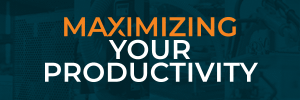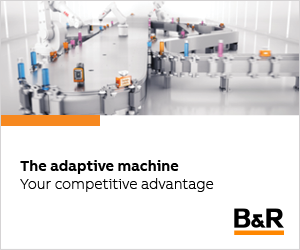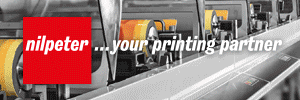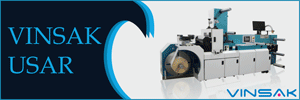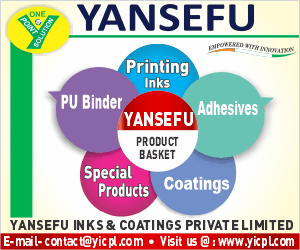
Cartoning, stacking, and palletizing are the final steps before products are shipped for delivery or stocking in warehouses. When we speak about cartoning, stacking, and palletizing, one can picture a carton, conveyor, and robot. Robots are an essential element in these applications for picking and placing products. Robotic applications have become extremely essential in the pharmaceutical industry where cleanrooms and compliances play a vital role.
Shubham Automations has established itself as a leading provider of complex motion and robotic applications to the pharmaceutical industry. Together with next-generation automation solutions from Trio Motion Technology, it has successfully provided end-of-line solutions for leading brands in the pharmaceutical industry. Trio Motion Technology is a leading provider of technologically advanced applications catering to the stringent needs of the pharmaceutical industry.
“Our latest end-of-line automation (EOLA) provides a complete solution to expedite and streamline the entire packaging process,” says Prashant Patel, managing director, Shubham Automation. “Our smart track and trace technology solution tracks products across the entire supply chain. The solution offers zero human intervention and is fully compliant with 21CFR Part 11, ensuring the best product packing process in the industry.”
Higher efficiency and reduced costs
Robotic pick and place applications in the pharma packaging industry enable factories to increase efficiency, save workers from hazardous environments or tedious repetitive tasks, reduce training overhead, eliminate human error, increase repeatability and reproducibility, and remove the potential for human contamination in cleanrooms. Today, robotic pick-and-place applications have become essential in the pharma packaging industry with an increasing need for reducing human intervention and enabling end-to-end traceability.

Shubham Automation has advanced end-of-packaging line solutions for pharma companies. “Pick-and-place robots have gained popularity due to their adaptability and excellent return on investment. User convenience is a fundamental factor in the success of any product, solution, or technology. The pharmaceutical industry has embraced robotics due to the fact that it makes its production process more effective and streamlined,” explains Patel.
Shubham Automation is one of the biggest companies in the world, leveraging the latest technologies to build cutting-edge machines for the pharmaceutical industry. Its solutions for the pharmaceutical industry include checkweigher, track and trace machinery, and vision inspection solutions that comply with 21 CFR Part 11.
Accuracy, precision and speed lead to technology leadership
“One of our well-known pharmaceutical clients needed to transfer packaged bottles from a conveyor into cartons that would then be stacked and made ready for shipping. The company was handling the process manually. We could offer them a comprehensive, accurate and precise solution using Trio Motion Technology,” Patel said. “Trio Motion is our solution partner as they offer custom-tailored solutions for automation and motion technology. It provides out-of-the-box and customized solutions in various industries and has extensive in-house technical expertise. We are associated with Trio Motion for over five years and fully trust their future-proof solutions offering our machines the necessary product quality. Our partnership with Trio Motion gives us confidence that our machines worldwide will always deliver reliable best-in-class performance.”
The machines equipped with a 6-axis robot from Trio Motion enable picking and placing 60 bottles per minute, allowing the user to set up various possibilities according to his needs with a simple click of a button. The machine enables packaging in a matrix of 4×2, 5×2, 6×5 and 6×6 at the in-feed 6-axis robot.
“The architecture of this particular machine consists of 8-axis where the 6-axis controls the pick and place activity, whereas the 7th and 8th axes are for infeed and outfeed of the conveyor,” explains Chirag Bhatt, engineering manager, Trio Motion Technology India. “The infeed conveyor feeds the robot with the bottles for packaging. Our visualization on our intuitive HMI enables the operator to choose between the possible packaging matrices such as 4×2, 5×2, 6×5, and 6×6. Effective machine interlocks enable an operator to swap picking grippers when switching between several matrix options, preventing errors. A single controller controls the in-feed, out-feed, and robotic systems. Typically, such systems require multiple controllers and HMIs making the system complex and expensive. Using our technology, Shubham was able to provide a complete, accurate, and precise solution while reducing costs to a minimum. With this completely integrated design, Shubham was able to reduce costs and increase efficiency and output considerably.”
Integrated solutions for better performance
With technological advancement, machine builders and factories demand powerful and high-performance controllers that can handle complex motion tasks and machine learning, artificial intelligence, and cloud connectivity algorithms. Conventionally, machine builders need to either have an industrial PC solution for implementing high-level algorithms and a separate controller for machine-level applications. This increases programming complexities and adds costs and components to machine architecture. Moreover, with robots in such systems, there are chances of adding another controller for the robotic applications, further adding to complexities and costs.
“Thanks to our PC-MCAT-2, which is Motion + PC Solution, we could easily cater to this very dynamic and complex process on a single system,” says Bhatt. “PC-MCAT-2 is our revolutionary Motion + PC Solution. A range of Intel CPUs (from Celeron to i3-i7) are employed to power a high-performance motion controller and a PC capable of running Windows software. PC-MCAT-2 is ideally suited for applications in which a machine requires a PC’s software and hardware capabilities in conjunction with a powerful 64-axis Motion Coordinator and robotic controller.”
PC-MCAT-2 is the latest iteration of Trio’s PC-MCAT product, which combines PC technology with the Motion-iX sophisticated motion core to allow PC applications to operate alongside real-time motion control on a deterministic EtherCAT communication. Motion Perfect application development software allows for creating user programs in Trio’s defined multitasking programming language or industry standard IEC61131-3. Alternately, applications can be developed and performed on Windows using a shared memory API to interface with Trio’s Motion-iX sophisticated motion core, allowing maximum application development flexibility.
PC-MCAT-2 provides a variety of communication connections for connecting PC peripherals, including Ethernet (up to 1000Mbit), USB (3.0 and 2.0), COM ports (RS232 and RS485) and HDMI. PC-MCAT-2 includes 16 GPIO pins, 8 DIN, and 8 DOUT in addition to the communication connections. Trio’s Motion-iX powerful motion core and support for PC peripherals and standard Windows applications provide a high-performance, adaptable solution for applications that require unique external devices (e.g. vision applications).
Close collaboration for lasting success
Trio Motion Technology has a robust suite of out-of-the-box and customizable OEM packing machine applications. “With a range of SCARA and 6-axis robot kinematics, we are expanding on Robot Programming System’s success (RPS). In such pick-and-place applications, robots increase productivity and efficiency. Our full automation portfolio of high-performance integrated automation and robotics is advantageous to various OEMs. Integrating robot, motion, and machine automation into a single controller allows OEMs to design and commission machines and lines more easily and quickly. In essence, it entails less downtime in the field for our customers, hence increasing the output of machine operators. Reducing development and maintenance difficulties and employing a single controller for all activities results in cost-effective and high-performance machines,” concludes Bhatt.


